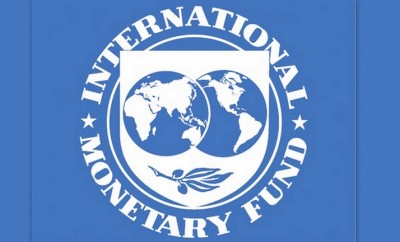
President Trump ignores IMF warning at his peril
Today, the IMF issued a downbeat warning on the state of the global economy. It noted that it now expected global economic growth to slow to barely 3.3% in 2019 as a result of an expected synchronized economic slowdown in 70% of the global economy.
Worse yet, the IMF emphasized that the risks to the global economy were tilted clearly to the downside. Among the risks were those of a disruption to global supply chains that could be caused by a renewed flare up in trade tensions, unpleasant economic surprises in the Chinese and European economies, and the possibility of a hard Brexit.
As a measure of how gloomy the IMF economic outlook has become, it is hanging its hopes for a global economic rebound in the second half of this year on a stabilization of the Argentine and Turkish economic meltdowns. In so doing, it is choosing to turn a blind eye to the fact that the Argentine currency is again sinking like a stone as President Macri’s poll ratings drop ahead of the country’s October presidential election. It is also choosing to ignore President Erdogan’s recent major setback in local elections that has undermined his ability to revitalize the Turkish economy.
Evidently the Trump administration is not paying much attention to the IMF’s assessment as to the currently delicate state of the global economy. Had it shared the IMF’s assessment, it would not have chosen now to impose import tariffs on $11 billion of European goods in a manner that threatens to intensify US-EU trade tensions. Nor would it keep threatening Europe and Japan with a 25% tariff on automobile imports on the highly questionable ground that such imports constitute a national security risk.
A heightening by the US of global trade tensions at this delicate juncture in the global economy would seem to be singularly misguided for two reasons. First, it would heighten the risk that the global economy will succumb to another economic recession. Second, it will further undermine the basis for international economic cooperation that will be necessary to build a coordinated international response to any future such global recession.
Desmond Lachman joined AEI after serving as a managing director and chief emerging market economic strategist at Salomon Smith Barney. He previously served as deputy director in the International Monetary Fund’s (IMF) Policy Development and Review Department and was active in staff formulation of IMF policies. Mr. Lachman has written extensively on the global economic crisis, the U.S. housing market bust, the U.S. dollar, and the strains in the euro area. At AEI, Mr. Lachman is focused on the global macroeconomy, global currency issues, and the multilateral lending agencies.




